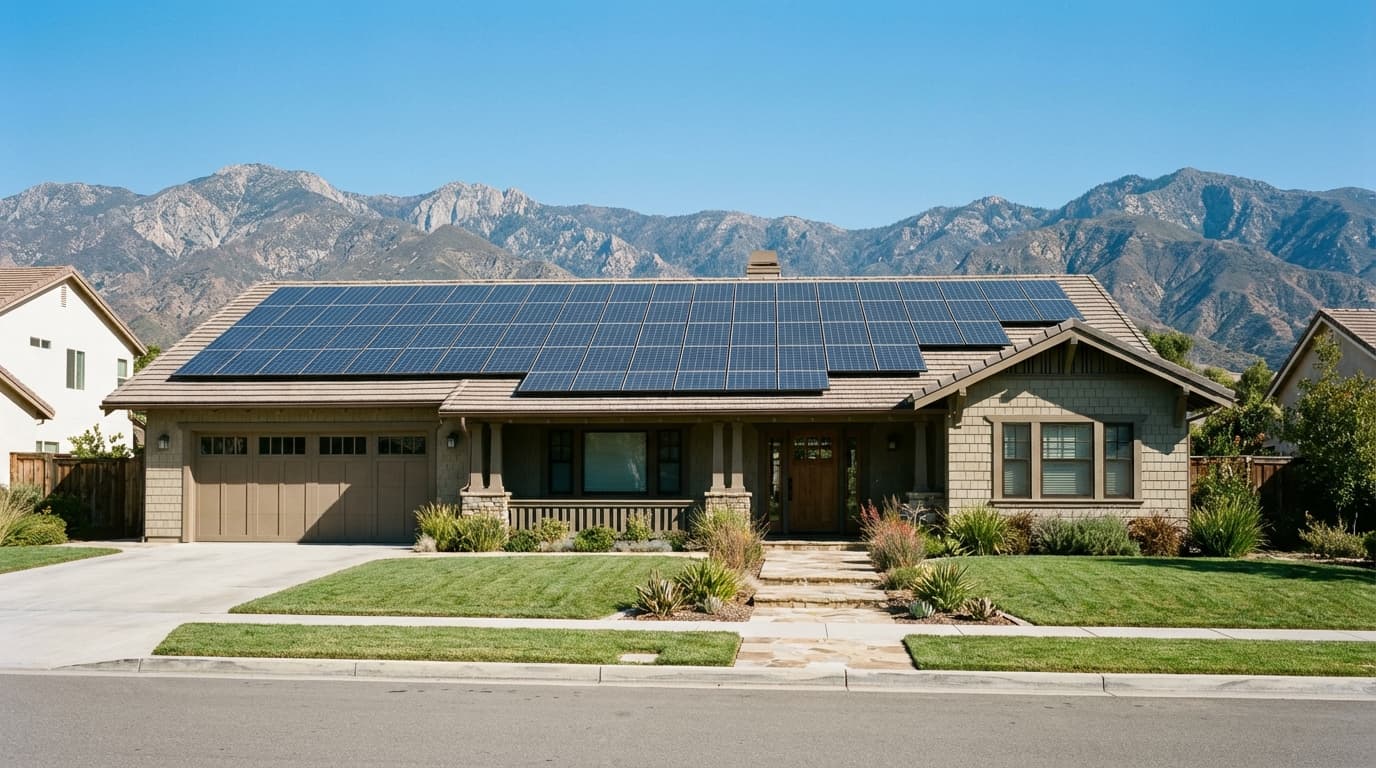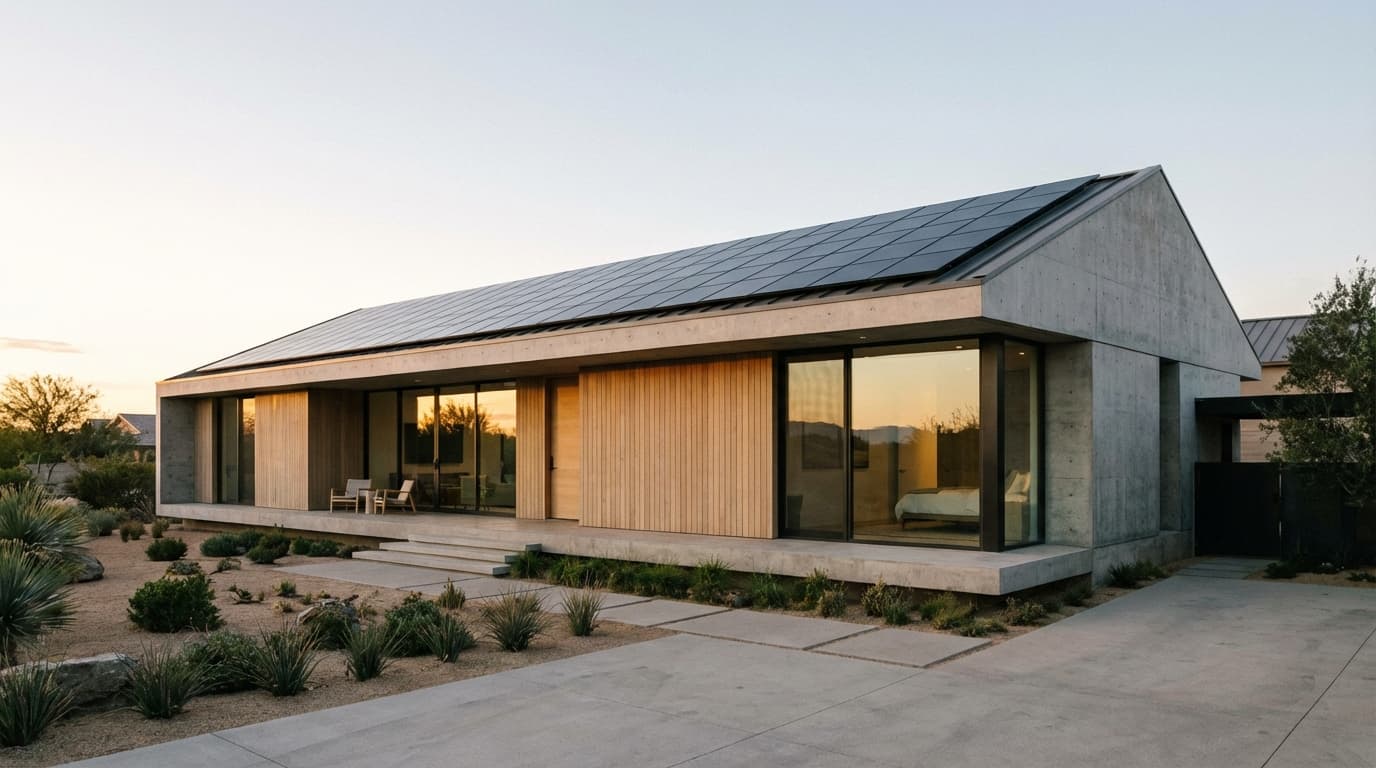What Is Smart Energy? A Complete Guide
Smart energy uses digital technology, IoT sensors, and AI to optimize how we generate, distribute, and consume electricity. Learn how smart grids, smart homes, and renewables are transforming the energy landscape.
What Is Smart Energy?
Smart energy uses digital tools and automation to improve how we make, move, store, and use electricity. It marks a big change from the old one-way power grid. The new system is connected and responds to real-time conditions like supply, demand, and weather.
At its core, smart energy makes our power systems work better. It is more efficient, reliable, and clean. It pairs renewable sources like solar and wind with tools like IoT sensors, AI, and battery storage. The result is energy that costs less and holds up better than old systems.
The Traditional Grid vs. the Smart Grid
To understand smart energy, it helps to know what it replaces.
The Traditional Power Grid
The old electrical grid was built over 100 years ago. Large power plants (coal, natural gas, nuclear) send electricity one way through power lines to homes and businesses. This system has key limits:
The Smart Grid
A smart grid adds digital communication to the physical power system. Two-way data flow between utilities, energy sources, and consumers makes new things possible:
Key Technologies Powering Smart Energy
Several technologies work together to make smart energy possible.
Internet of Things (IoT) Sensors
IoT devices act as the nervous system of smart energy. Millions of sensors sit in power lines, transformers, solar panels, batteries, and home devices. They collect data all the time. This data feeds into systems that fine-tune grid performance in real time.
Examples of IoT in energy include:
Artificial Intelligence and Machine Learning
AI reads the huge amounts of data from IoT sensors. It makes predictions and improves operations. Key uses include:
Battery Energy Storage
Battery storage makes solar and wind energy reliable despite inconsistent output. Batteries store extra solar and wind energy when production is high. They release that energy during cloudy periods, nighttime, or peak demand hours.
At the grid scale, lithium-ion battery projects are growing fast. At the home level, products like the Tesla Powerwall, Enphase IQ Battery, and Franklin WholHome let homeowners store solar energy. They can then use it when they need it most.
Advanced Metering Infrastructure (AMI)
Smart meters are the part of the smart grid that consumers see. Unlike old meters that just track total usage, smart meters offer:
Over 100 million smart meters are now in use across the US. They cover roughly 70 percent of homes.
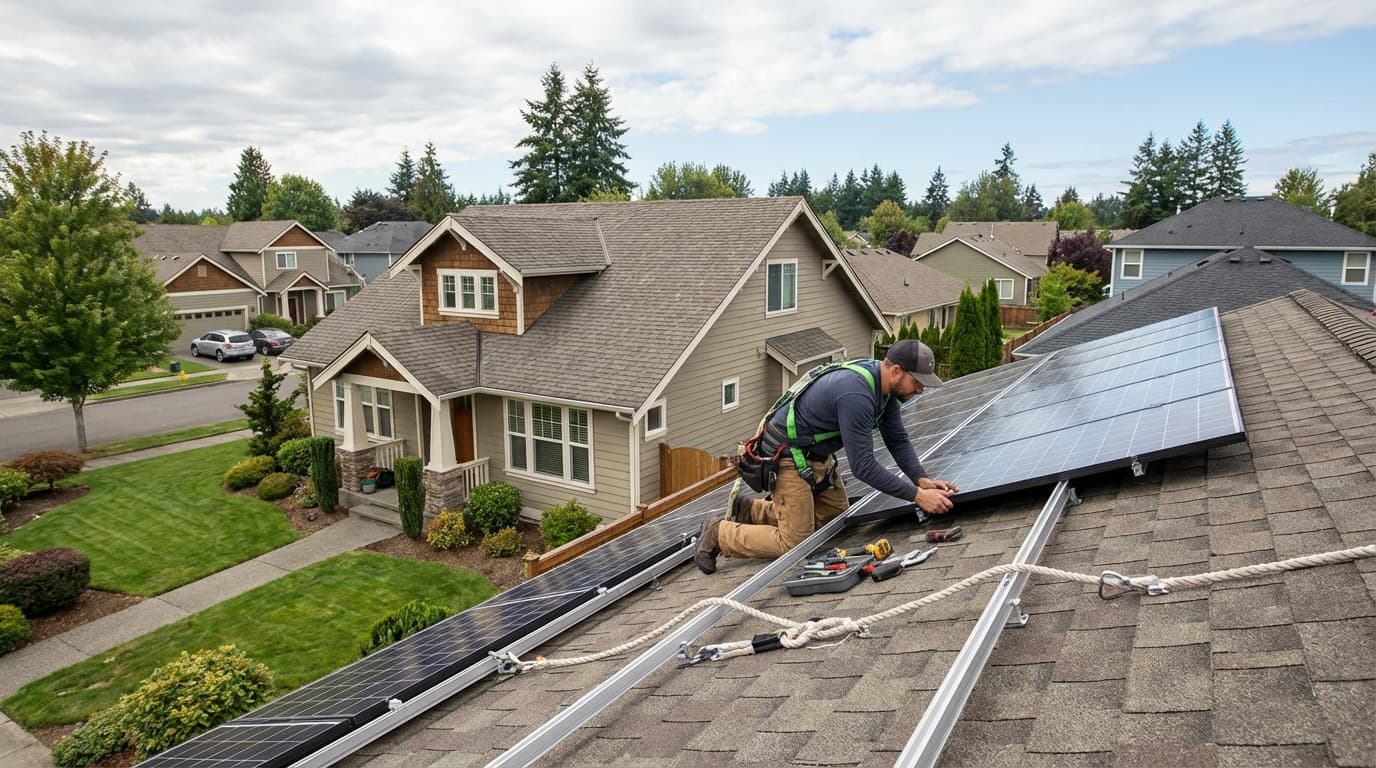
Smart Energy in the Home
For homeowners, smart energy means hands-on tools that cut electricity bills and boost energy freedom.
Smart Thermostats
Devices like the Ecobee and Google Nest learn your schedule and habits. They adjust heating and cooling on their own to cut energy waste. When linked to a smart grid, they can pre-cool your home during off-peak hours. They also reduce usage during pricey peak periods.
Home Energy Management Systems (HEMS)
A HEMS ties your solar panels, battery, EV charger, smart thermostat, and major appliances into one platform. It decides when each device runs. It bases this on solar output, battery level, electricity rates, and your preferences.
For example, a HEMS might:
Solar-Plus-Storage Systems
A rooftop solar system paired with a home battery is the base of a smart energy home. During the day, solar panels power your home and charge your battery. They also send extra energy to the grid. At night, the battery covers your usage. Any remaining need comes from the grid.
Time-of-use rates are becoming more common. This setup lets homeowners skip the most costly electricity periods entirely. Savings can reach hundreds or even thousands of dollars per year.
Smart Plugs and Appliances
Wi-Fi-connected plugs and smart appliances let you monitor and control devices from anywhere. You can find energy hogs, set schedules, and auto-shut-off devices that draw standby power.
Smart Energy and Renewable Integration
One of the biggest challenges with renewable energy is inconsistent output. The sun does not always shine. The wind does not always blow. Smart energy solves this through several methods.
Grid Balancing
Smart grid operators use real-time data from thousands of sources. They balance supply and demand second by second. When clouds reduce solar output across a region, the grid responds right away. It can tap battery storage, adjust demand response programs, or ramp up other generators.
Virtual Power Plants
A virtual power plant (VPP) links thousands of spread-out energy sources into one network. This includes rooftop solar, home batteries, and EV chargers. The VPP operator can pull stored energy from hundreds of home batteries at once. This creates a power plant with no physical building.
VPPs already run in several US states. Tesla, Sunrun, and various utilities pay homeowners to take part.
Vehicle-to-Grid (V2G) Technology
Electric vehicles are a huge network of spread-out batteries. V2G technology lets EVs send stored energy back to the grid during peak demand. A single EV battery can power an average home for 2 to 3 days. Across millions of vehicles, this creates a massive flexible energy source.
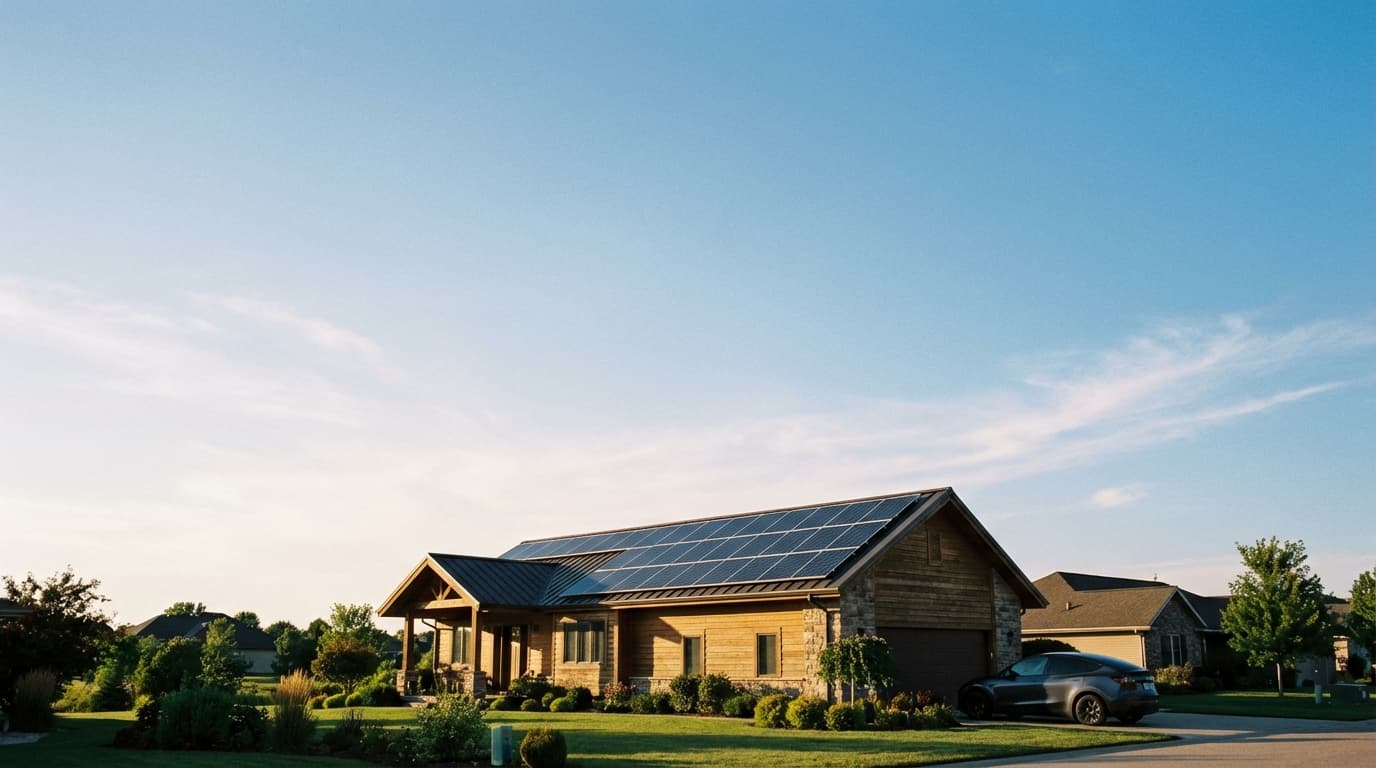
The Benefits of Smart Energy
Lower Energy Costs
Smart energy cuts costs at every level. Utilities run more efficiently. They need fewer costly upgrades and backup plants. Consumers save through time-of-use plans, demand response rewards, and less need for grid power thanks to solar and storage.
Greater Reliability
Smart grids find and fix outages faster. They often respond before customers even notice. Self-healing grid tech can reroute power around damaged sections on its own. Home batteries provide backup during long outages.
Environmental Impact
Smart energy helps more renewable power reach the grid. It also cuts waste across the whole system. This leads to much lower greenhouse gas emissions. The US Energy Information Administration expects renewables to pass coal and natural gas as the top US power source by 2027. Smart grid tech speeds up this shift.
Energy Independence
At the home level, solar panels and batteries give homeowners control over their power. At the national level, spread-out renewable generation cuts our need for imported fossil fuels. It also strengthens energy security.
Challenges and Considerations
Cybersecurity
A more connected grid opens more doors for cyberattacks. Utilities and tech providers must spend heavily on cybersecurity to protect key systems. Federal rules like NERC CIP (Critical Infrastructure Protection) set baseline standards. But threats keep changing.
Privacy Concerns
Smart meters and IoT devices collect detailed data about energy use patterns. This can reveal daily routines and habits. Strong data privacy rules and consumer consent are essential.
Upfront Costs
Smart grid systems need large investments from utilities. These costs get passed on to ratepayers. However, studies show that long-term savings far outweigh the upfront costs. Better efficiency, fewer outages, and delayed upgrades all add up.
Digital Divide
Not all communities have equal access to smart energy tools. Rural areas may lack the broadband needed for smart grid communication. Lower-income households may not be able to afford smart home devices or solar panels. Fair access policies are key to making sure smart energy helps everyone.
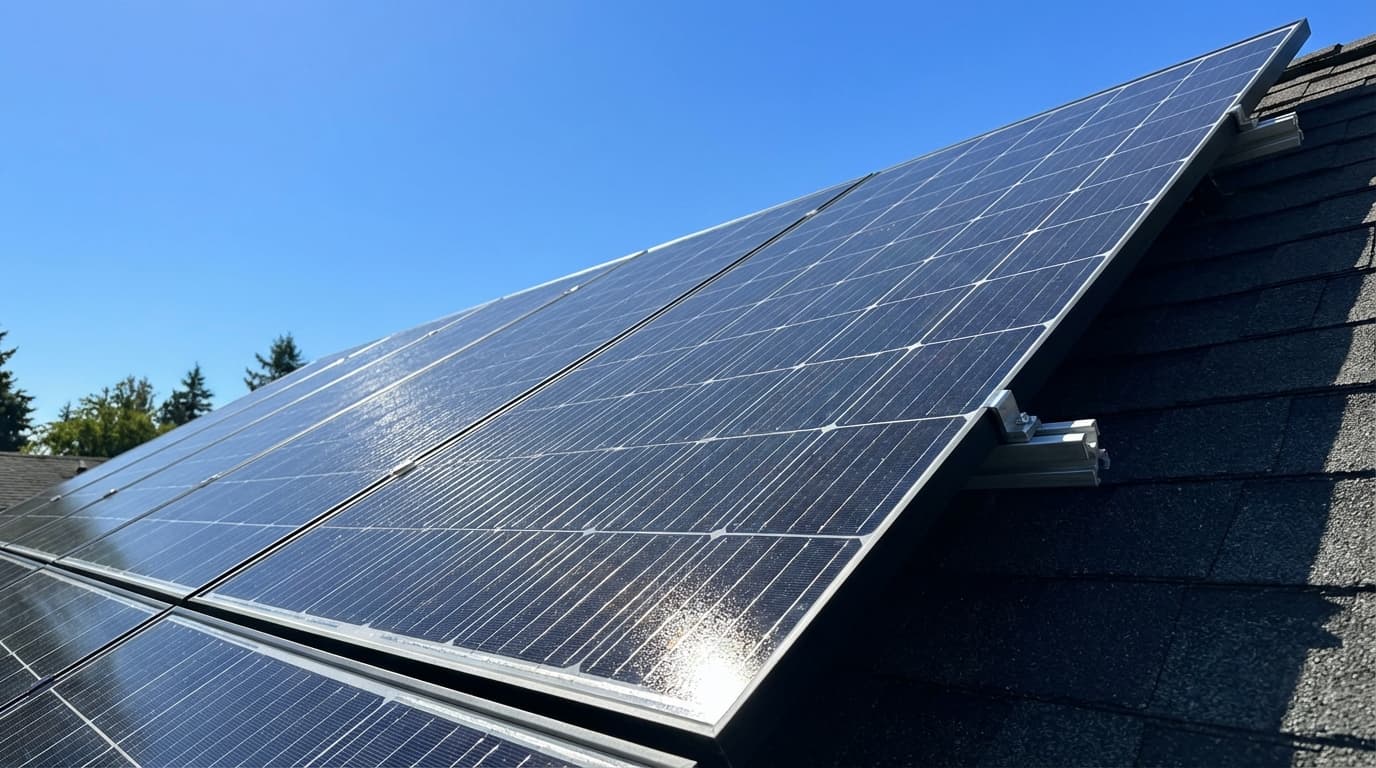
The Bottom Line
Smart energy is not a future idea. It is happening now. Smart meters sit on our homes. AI systems manage our power grid. Digital technology is changing how we make and use electricity.
For homeowners, the best step toward smart energy is adding solar panels with battery storage. This creates a personal energy system that is clean, affordable, and smart.
SmartEnergyUSA helps homeowners move to smart energy. We connect you with top-rated solar installers and battery storage providers. Get a free quote today and take the first step toward a smarter energy future.
